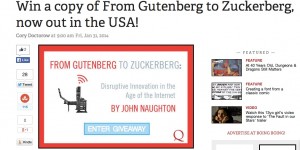The UK government’s worship of SMEs (they are the industrial equivalent of “hardworking families” in Cameron’s lexicon) is comical to behold. Likewise the devout belief of tech entrepreneurs (especially in the US) that the only thing they need from government is to get out of their way. So it’s nice to come upon a blog post by Professor Mariana Mazzucato which punctures some of these fantasies.
Innovation-led “smart” growth has occurred mainly in countries with a big group of medium to large companies, and a small group of SMEs that is spun out from some of those large companies or from universities. These firms have benefited immensely from government funded research. Indeed, in my book I show how many firms in Silicon Valley have benefitted directly from early-stage funding by government, as well as the ability to build their products on top of government funded technologies. Every technology that makes the iPhone smart was government-funded (internet, GPS, touch-screen display, SIRI). Apple spends relatively little on R&D compared with other IT firms precisely because it uses existing technology. It applies its remarkable design skills to these technologies, effectively surfing on a government-funded wave. Apple, Compaq and Intel also all enjoyed the benefits of early-stage public funds (SBIC in the case of Apple, SBIR in the case of Compaq and Intel). As for America’s biotech boom (and the startups it has spawned), it was fuelled not by a random rise of genius and tinkering but by two fundamental factors: the 1980 Bayh-Dole act that allowed publicly funded research to be patented (which led to an exponential rise of spinouts based on such patents), and the massive funding of the underlying knowledge base. Between 1936 and 2011 the publicly funded National Institutes of Health spent $792 billion (in 2011 dollars), with last year’s budget alone totalling $30.9 billion. Small innovative firms benefit immensely from interacting with such an ecosystem. Left alone they get preyed upon by an increasingly short-termist financial system.
Her book is excellent, btw.

